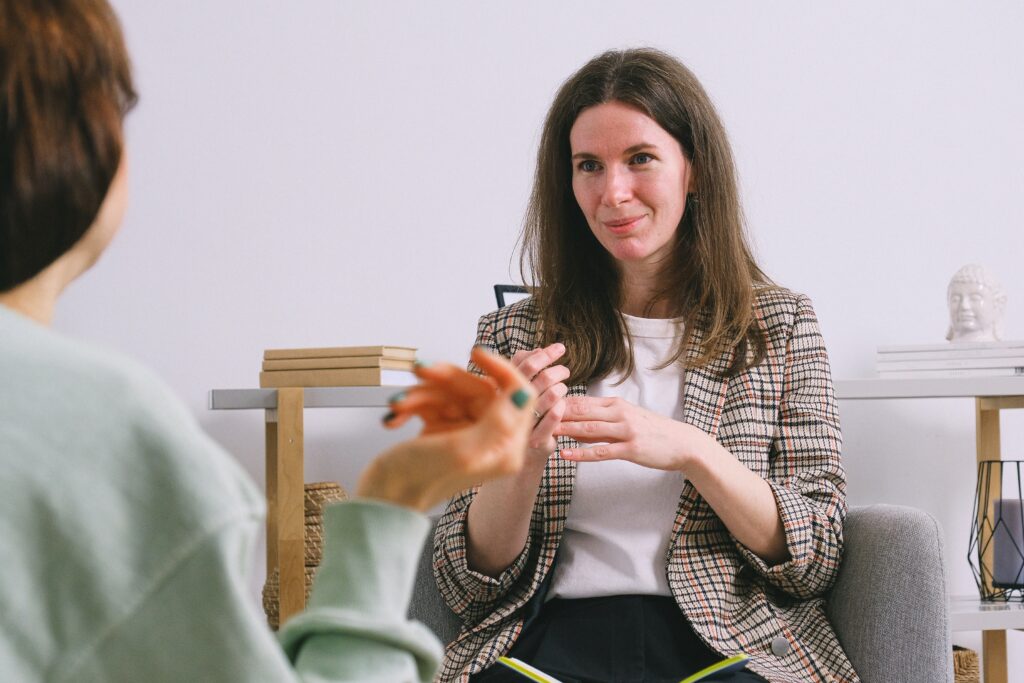The Benefit of Working With an ADHD Specialist
Living with ADHD can feel overwhelming. Therapy for older teens and adults with ADHD generally includes assessing, diagnosing, and treating ADHD and, specifically, the mental health conditions that may accompany it.
When it comes to treating ADHD in adults, studies have shown that the most effective approach is usually a combination of medication, skills training, and counseling. Research suggests that adults with ADHD who have a treatment plan that includes medication and cognitive behavioral therapy (a form of talk therapy aimed at changing patterns in thinking and behavior) are better able to manage their symptoms than those who only take medication. Organizational skills and self-esteem also seem to improve as well.
Different Kinds of ADHD Specialists
There are a wide variety of specialists who can help treat ADHD. These include:
- Neuropsychologists – Neuropsychologists specialize in assessing and treating problems with the brain. They can help people with ADHD identify and manage their symptoms.
- Clinical Psychologists – Clinical psychologists specialize in providing therapy for mental health disorders. They can help people with ADHD manage their symptoms and learn how to cope with them.
- ADHD Coaches – ADHD coaches are trained to help people with ADHD achieve their goals and manage their symptoms. They can provide guidance and support, and help you stay on track with your goals.
- Specialist Doctors – There are many different types of specialist doctors who can help treat ADHD. Examples include neurologists, psychiatrists, and developmental pediatricians.
- Social worker – A social worker can address the entire family to help ease the impacts of ADHD. They can also offer moral support and suggestions for treatment options.
- Nurse practitioner – Known for spending more time with you and offering more frequent follow-ups, nurse practitioners are usually equipped to handle mental health care.
- Occupational therapist – You might think of an occupational therapist as someone who treats physical ailments. But they can also help people living with ADHD by teaching them organizational skills.
As part of your overall treatment plan, you may work with several specialists over time.
Finding an ADHD Specialist That is Right for You
Sharon Saline Psy.D. recommends the following process for finding and evaluating an ADHD specialist to work with.
- Determine what you want in an ADHD specialist – This may include whether the therapist is male or female, older or younger, LBGTQ friendly, as well as the level of specialization / experience with ADHD.
- Do your research – Get referrals from your physician, friends, or colleagues before talking with your insurance company. Make sure whoever you see takes your insurance, and your insurance company has approved you to meet with a few different people. You may want to be able to interview one or two people before making a decision.
- Conduct a brief phone interview before agreeing to meet with a specialist – Ask your prospective specialist about their experience, their therapy modalities, and the types of post-session interventions they might recommend.
- Determine the specialist’s level of comfort with collaboration – For example, you may be working on social anxiety and making friends in therapy and then get help from a coach for strategies to complete homework or work projects more efficiently. Is the specialist willing to work collaboratively with other members of your care team?
Remember that the first few therapy sessions are generally about getting to know each other and seeing if it’s a good fit. Be prepared to share information about yourself and ask them any questions you may have about them and their work.
An important consideration is cost. Therapy can be expensive and not all insurance plans will cover these services. Group therapy could be a more affordable, accessible alternative to individual therapy. Groups can be very targeted in addressing the difficulties encountered with ADHD and the coping strategies. The benefit of group therapy is being in the program with other adults who have experienced the same things. This is especially true when it comes to relationships issues.
References
- https://www.psychologytoday.com/us/blog/your-way-adhd/202207/adhd-and-seeking-therapy
- https://www.webmd.com/add-adhd/features/adult-adhd-therapy-finding-right-therapy
- https://www.verywellmind.com/how-to-find-an-adhd-specialist-5221303
- https://psychcentral.com/adhd/how-to-pick-an-adhd-therapist-whos-right-for-you



